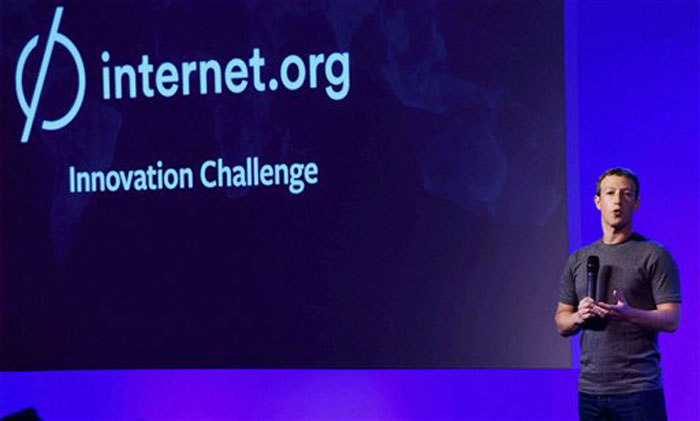Facebook’s 7 reasons as to why Internet.org doesn’t violate Net Neutrality
In light of the #NetNeutrality debate, Facebook has issued a statement to provide more clarity and bust several 'myths' related to Internet.org.
 Facebook claims to have brought over 7 million people online through Internet.org.
Facebook claims to have brought over 7 million people online through Internet.org.After Facebook’s Internet.org initiative recently came under criticism for violating Net Neutrality principles in India, the company has been determined to fight this negative view.
Earlier, Mark Zuckerberg defended Internet.org by saying it can co-exist with Net Neutrality rules. After that, Facebook also opened up the new Internet.org platform to developers.
Facebook has now issued a statement to provide more clarity and bust several ‘myths’ related to Internet.org.
Facebook’s statement:
1) Internet.org doesn’t help people connect to the internet.
Facebook says: In less than a year, Internet.org has brought more than 7 million people online. People now have access to basic internet services including tools and resources for communication, health, education and local news.
2) Internet.org is an exclusive program available to only one operator per country.
Facebook says: Internet.org is non‐exclusive and is open to any operator who wants to participate.
3) Facebook pays operators to zero rate the services within Internet.org.
Facebook says: Facebook does not pay operators for the data that people consume. We partner with operators on the technical side and provide marketing support to help make people aware of the program. If successful, people using the Internet for the first time will begin to experience its benefits and over time will start exploring and paying to use the broader internet.
4) Facebook wants to keep people within a “walled garden” of free content.
Facebook says: Internet.org is successful only if the newly connected reach the broader Internet. Operators can’t afford to invest in improving their infrastructure if new users never pay for data. This week, Facebook launched the Internet.org Platform, which helps more developers to include their services in Internet.org and gives people greater choice over the services that they want to use.
5) Many people think that Facebook is the entire internet, and Facebook is trying to use Internet.org reinforce that impression.
Facebook says: Internet.org introduces people to the value of the entire internet through a set of free basic services. If Facebook just provided a fixed amount of free internet, then people would likely use it to browse a small number of global sites. Giving people a list that features a broader set of services is important for helping people experience the value of other online services, like women’s health information and education services.
6) Facebook has launched Internet.org to help drive its own growth and revenue opportunities within developing countries.
Facebook says: There are no ads within the Facebook experience on Internet.org. If revenue were the goal, Facebook would have focused resources on markets where online advertising is already thriving.
7) Facebook is picking winners by independently selecting the services included in Internet.org
Facebook says: In the nine countries where Internet.org has launched, Facebook has worked closely with operators, developers and entrepreneurs to find the right set of local services for each country. Because these services have to be specially built to localized specifications, Facebook started by offering just a few services in each country.
This week Facebook announced the launch of the Internet.org Platform, which gives more developers an opportunity to include their services in Internet.org and give people greater choice over the services that they want to use.






